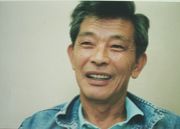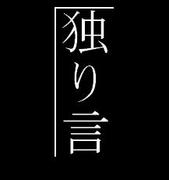六本木・サテンドールの「音の輪」コンサートに行ってきました。日系アメリカ人のジャズバンドで、今回の訪日ツアーの目的は東北支援です。月の砂漠、からたちの花、宵待草、涙そうそう、さくら、恋のバカンス、など日本の楽曲も数多くジャズ風にアレンジされていて、面白いライブでした。
http://
ドラムスがリーダー格のアキラ・タナ。珍しい苗字で、日系アメリカ人でタナというと、『サンタフェー・ローズバーグ 戦時敵国人抑留所日記』(山喜房佛書林1976)を書いた田名大正(たな・だいしょう)と、同書を編集した奥さんの田名ともゑ、位しか思いつきません。この本、全4巻で現在は絶版。アマゾンを観てみると18万円とうい途方もない値段がついています。サンタフェーとローズバーグは、第2次大戦中、日系人のリーダーが抑留されたニューメキシコ州の地名です。こういった抑留所はテキサス州のクリスタルシティ、モンタナ州のミゾラ、北ダコタ州のビスマルクにもありました。
『サンタフェー・ローズバーグ 戦時敵国人抑留所日記』は実に詳細な日記で、抑留所での暮らしぶりが手に取るようにわかります。田名大正は浄土真宗の僧侶で、他に『佛の救済』(佛教法輪会, 1966)、『佛子生活』(佛教法輪会, 1969)、『佛の教法』(百華苑1972)を書いています。
コンサートは3部制でしたが、その合間に友人の神田さんからアキラ・タナを紹介され、彼に、先祖がどこの出身かを尋ねた。山口県だという。山口にその苗字は多いのかを尋ねると、おそらく本当は田辺とかなんとかで、それを田名にしたのだろう、と。少し心もとない答だったが、「タナという苗字は、『サンタフェー・ローズバーグ 戦時敵国人抑留所日記』を書いた田名大正くらいしか思いつかない」と私がいうと、「ダイショウ・タナ? それは私の父だ」と。
へえ、と思わず声をあげてしまった。田名という姓には日本でまだ出会ったことがないが、苗字ランキングを調べてみると、16737位で、日本に79世帯しか存在しない。やはりかなり珍しい苗字だ。山口県の苗字ランキングを調べてみると、2位が田中。田中、が田名になった可能性もある。同ランキングで田名という苗字は見当たらないので、アキラがいうように、田辺とか田中を縮めた可能性が高い。アメリカ人が言いやすいように、苗字を変えるのは、日系人ではよくあることだからだ。
ネットで調べると、こんな記述があった。アキラ・タナが田名大正の息子であることが明記されている。
Akira Tana, son of the late Berkeley Buddhist Temple minister, Rev. Daisho Tana, has established himself as one of the most sought-after drummers on the international jazz scene. Tana has performed with Lena Horne, The Manhattan Transfer, Leonard Bernstein, Seiji Ozawa, Gunther Schuller and Charles Aznavour, among many others, with performances on more than 100 recordings. At the Satsuki Bazaar and Arts Festival, he will perform with his group Otonowa (which means "Sound Circle"). Otonowa consists of Ken Okada on bass and Masaru Koga on multi-reeds.
こんな記述もある。上記の本を編集した奥さんのともゑさんは、琴とピアノを弾いていたようですね。やはり音楽の血筋が流れている。
Growing up in Palo Alto, Tana played in a rock band as a teenager, and was exposed to jazz mostly through his older brother. His father, Daisho Tana, led various Buddhist congregations around the Bay Area (including the Berkeley Buddhist Temple at 2121 Channing Way in the 1930s) and his mother played koto and piano. Tana became a devoted jazz convert after acquiring a used copy of Miles Davis’s classic 1966 album “Miles Smiles” (Columbia).
以下、田名大正が、戦時中の1945年に書いた「東海道53次」という文章の英訳版で、LAの日系米人博物館に所蔵されているらしい。この説法では善財童子のことが紹介されている。善財童子はインドの長者の子に生まれ、ある日、仏教に目覚めて文殊菩薩の勧めにより、様々な指導者53人を訪ね歩いて段階的に仏教の修行を積み、最後に普賢菩薩の所で悟りを開くという、菩薩行の理想者として描かれている。東海道53次はこれをもとにしたものらしい。人間、53回くらい色んなことにぶつからないと、まともにはならないのでしょうね。
Sunday Dharma Message Series– No. 53
Fifty-Three Stages of Tokaido(Goju San Tsugi)
By Rev. Daisho Tana
Dharma passage:
… in this fleeting world – this burning house – all matters without
exception are empty and false, totally without truth and sincerity.
The nembutsu alone is true and real.
– Tannisho
If I say, “Today is April 1,” then everyone would immediately say “April Fool.”
Therefore, thinking that you’re going to be fooled, you would be suspicious of everything you heard today. But for myself, at least, and not only today, I wish someone would yell out “April Fool” to the nightmare of a war that began on December 7, 1941, the three years of being incarcerated in the camps, those Nikkei soldiers who died in battle, and the closure of the relocation centers. It would be just fine if someone told us that it was all just a joke that never happened.
So we come to realize that it is not only today that we are distrustful of everything that happened after the war. When I thought about this, Shinran Shonin’s Dharma passage came to mind. Four years ago, in a camp where there were no children, I wrote this dharma message recalling the happy faces of the Sunday school children. I thought of those three years before the start of the war when I had the privilege of seeing the children’s faces. Now the pretty daughter may be a beautiful bride and the young rascal, a fine young man. I was also shocked to hear that even Mamoru Kikuno has become an adult and has grown to 5 feet 2 inches tall.
And yet, if I give a Dharma talk to the children as I remember them, then someone might look at me with a strange reaction. So, I thought, if we count the Sundays from today to next March, we will have fifty-three Sundays. Then I recalled from a reading from the Garland Sutra about a young man, Zenzai Doji, who traveled through Fifty-Three Stages in his Buddhist practice. From this story, the famous Fifty-Three Stages (rest stops) of the Tokaido, long ago the main highway from Edo to Kyoto, came to be.
The name “Zenzai” of Zenzai Doji comes from a passage: “We accumulate good virtues from our parents and make it our treasure (zenzai) in life.” Your name also may contain the hopes and dreams of your parents. Just as with you, Zenzai’s realization of the hardships of human existence did not become clear until he had become a fine young man. From this realization he decided to travel the path to become a good person.
First, he went to a temple in a town south of Gionshoja and listened to Manjusri Bodhisattva’s Dharma talk. As in the expression, “Manjusri’s wisdom will transmit even to a gathering of three,” hearing the Buddha-dharma from the very famous bodhisattva, Zenzai was so awakened that he declared, “I don’t even have such wonderful treasure like your name.”
Zenzai then said to Manjusri, “Dear Manjusri, ever since I was an infant, because my name was Zenzai, I believed that I was a good person. Now, I understand that I am not such a good person. One reason is that when I was a child I would play with a pretty girl and in the evening I would say, ‘Goodbye, I will see you tomorrow,’ and we would part. When I got home I would forget about her completely and go to sleep. Now today, if I meet a beautiful woman, I cannot wait until tomorrow, and I wish to be with her all night. Not only that, anything I see and hear is something that gets in the way of what I want. I am constantly getting frustrated. Sometimes, I even put up a wall between myself and my parents who have raised me. Even though I know this is not right, I cannot do anything about my foolish heart. Manjusri, how can I become a kind person?” This was his request.
Manjusri said to Zenzai, “Son, in order for you to truly become like your name (treasure), simply walk the path guided by a teacher.” Fortunately, south of here in Karakukoku there is “kudokuumbiku” (monk) who can teach you. Listen and learn from what he has to say. Taking the suggestion, Zenzai left. When he reached the destination, he was then referred to a “kaiunbiku” (monk) further to the south. He continued to travel south from one place to another learning from one teacher and another. Finally, at the fifty-third stop, that of the Bodhisattva Samantabhadra, Zenzai deeply realized that the true meaning of “good virtue” is to trust wholeheartedly in the Dharma and be born in the Pure Land.
At a certain point while we are growing up, we have a tendency to doubt everything that people tell us. And just as though we were infants who do not seem to need to rely on parents, we say things like “Mom, I don’t believe you, and Dad, the same.” Not only this, there are times when we don’t trust our own lives and existence. If we bring this doubting mind to where we listen to the Dharma, we cannot attain the true treasure. It is this doubting mind that thinks Sunday school is useless. Just like the obedient Zenzaidoji who continuously followed instructions and lived life sincerely, one can become a true Nembutsu practicer.
So, no matter how old we are, let us become children of the Buddha and with obedient minds follow the next 53 stages of Sunday school.
Gassho.
April 1, 1945
http://
ドラムスがリーダー格のアキラ・タナ。珍しい苗字で、日系アメリカ人でタナというと、『サンタフェー・ローズバーグ 戦時敵国人抑留所日記』(山喜房佛書林1976)を書いた田名大正(たな・だいしょう)と、同書を編集した奥さんの田名ともゑ、位しか思いつきません。この本、全4巻で現在は絶版。アマゾンを観てみると18万円とうい途方もない値段がついています。サンタフェーとローズバーグは、第2次大戦中、日系人のリーダーが抑留されたニューメキシコ州の地名です。こういった抑留所はテキサス州のクリスタルシティ、モンタナ州のミゾラ、北ダコタ州のビスマルクにもありました。
『サンタフェー・ローズバーグ 戦時敵国人抑留所日記』は実に詳細な日記で、抑留所での暮らしぶりが手に取るようにわかります。田名大正は浄土真宗の僧侶で、他に『佛の救済』(佛教法輪会, 1966)、『佛子生活』(佛教法輪会, 1969)、『佛の教法』(百華苑1972)を書いています。
コンサートは3部制でしたが、その合間に友人の神田さんからアキラ・タナを紹介され、彼に、先祖がどこの出身かを尋ねた。山口県だという。山口にその苗字は多いのかを尋ねると、おそらく本当は田辺とかなんとかで、それを田名にしたのだろう、と。少し心もとない答だったが、「タナという苗字は、『サンタフェー・ローズバーグ 戦時敵国人抑留所日記』を書いた田名大正くらいしか思いつかない」と私がいうと、「ダイショウ・タナ? それは私の父だ」と。
へえ、と思わず声をあげてしまった。田名という姓には日本でまだ出会ったことがないが、苗字ランキングを調べてみると、16737位で、日本に79世帯しか存在しない。やはりかなり珍しい苗字だ。山口県の苗字ランキングを調べてみると、2位が田中。田中、が田名になった可能性もある。同ランキングで田名という苗字は見当たらないので、アキラがいうように、田辺とか田中を縮めた可能性が高い。アメリカ人が言いやすいように、苗字を変えるのは、日系人ではよくあることだからだ。
ネットで調べると、こんな記述があった。アキラ・タナが田名大正の息子であることが明記されている。
Akira Tana, son of the late Berkeley Buddhist Temple minister, Rev. Daisho Tana, has established himself as one of the most sought-after drummers on the international jazz scene. Tana has performed with Lena Horne, The Manhattan Transfer, Leonard Bernstein, Seiji Ozawa, Gunther Schuller and Charles Aznavour, among many others, with performances on more than 100 recordings. At the Satsuki Bazaar and Arts Festival, he will perform with his group Otonowa (which means "Sound Circle"). Otonowa consists of Ken Okada on bass and Masaru Koga on multi-reeds.
こんな記述もある。上記の本を編集した奥さんのともゑさんは、琴とピアノを弾いていたようですね。やはり音楽の血筋が流れている。
Growing up in Palo Alto, Tana played in a rock band as a teenager, and was exposed to jazz mostly through his older brother. His father, Daisho Tana, led various Buddhist congregations around the Bay Area (including the Berkeley Buddhist Temple at 2121 Channing Way in the 1930s) and his mother played koto and piano. Tana became a devoted jazz convert after acquiring a used copy of Miles Davis’s classic 1966 album “Miles Smiles” (Columbia).
以下、田名大正が、戦時中の1945年に書いた「東海道53次」という文章の英訳版で、LAの日系米人博物館に所蔵されているらしい。この説法では善財童子のことが紹介されている。善財童子はインドの長者の子に生まれ、ある日、仏教に目覚めて文殊菩薩の勧めにより、様々な指導者53人を訪ね歩いて段階的に仏教の修行を積み、最後に普賢菩薩の所で悟りを開くという、菩薩行の理想者として描かれている。東海道53次はこれをもとにしたものらしい。人間、53回くらい色んなことにぶつからないと、まともにはならないのでしょうね。
Sunday Dharma Message Series– No. 53
Fifty-Three Stages of Tokaido(Goju San Tsugi)
By Rev. Daisho Tana
Dharma passage:
… in this fleeting world – this burning house – all matters without
exception are empty and false, totally without truth and sincerity.
The nembutsu alone is true and real.
– Tannisho
If I say, “Today is April 1,” then everyone would immediately say “April Fool.”
Therefore, thinking that you’re going to be fooled, you would be suspicious of everything you heard today. But for myself, at least, and not only today, I wish someone would yell out “April Fool” to the nightmare of a war that began on December 7, 1941, the three years of being incarcerated in the camps, those Nikkei soldiers who died in battle, and the closure of the relocation centers. It would be just fine if someone told us that it was all just a joke that never happened.
So we come to realize that it is not only today that we are distrustful of everything that happened after the war. When I thought about this, Shinran Shonin’s Dharma passage came to mind. Four years ago, in a camp where there were no children, I wrote this dharma message recalling the happy faces of the Sunday school children. I thought of those three years before the start of the war when I had the privilege of seeing the children’s faces. Now the pretty daughter may be a beautiful bride and the young rascal, a fine young man. I was also shocked to hear that even Mamoru Kikuno has become an adult and has grown to 5 feet 2 inches tall.
And yet, if I give a Dharma talk to the children as I remember them, then someone might look at me with a strange reaction. So, I thought, if we count the Sundays from today to next March, we will have fifty-three Sundays. Then I recalled from a reading from the Garland Sutra about a young man, Zenzai Doji, who traveled through Fifty-Three Stages in his Buddhist practice. From this story, the famous Fifty-Three Stages (rest stops) of the Tokaido, long ago the main highway from Edo to Kyoto, came to be.
The name “Zenzai” of Zenzai Doji comes from a passage: “We accumulate good virtues from our parents and make it our treasure (zenzai) in life.” Your name also may contain the hopes and dreams of your parents. Just as with you, Zenzai’s realization of the hardships of human existence did not become clear until he had become a fine young man. From this realization he decided to travel the path to become a good person.
First, he went to a temple in a town south of Gionshoja and listened to Manjusri Bodhisattva’s Dharma talk. As in the expression, “Manjusri’s wisdom will transmit even to a gathering of three,” hearing the Buddha-dharma from the very famous bodhisattva, Zenzai was so awakened that he declared, “I don’t even have such wonderful treasure like your name.”
Zenzai then said to Manjusri, “Dear Manjusri, ever since I was an infant, because my name was Zenzai, I believed that I was a good person. Now, I understand that I am not such a good person. One reason is that when I was a child I would play with a pretty girl and in the evening I would say, ‘Goodbye, I will see you tomorrow,’ and we would part. When I got home I would forget about her completely and go to sleep. Now today, if I meet a beautiful woman, I cannot wait until tomorrow, and I wish to be with her all night. Not only that, anything I see and hear is something that gets in the way of what I want. I am constantly getting frustrated. Sometimes, I even put up a wall between myself and my parents who have raised me. Even though I know this is not right, I cannot do anything about my foolish heart. Manjusri, how can I become a kind person?” This was his request.
Manjusri said to Zenzai, “Son, in order for you to truly become like your name (treasure), simply walk the path guided by a teacher.” Fortunately, south of here in Karakukoku there is “kudokuumbiku” (monk) who can teach you. Listen and learn from what he has to say. Taking the suggestion, Zenzai left. When he reached the destination, he was then referred to a “kaiunbiku” (monk) further to the south. He continued to travel south from one place to another learning from one teacher and another. Finally, at the fifty-third stop, that of the Bodhisattva Samantabhadra, Zenzai deeply realized that the true meaning of “good virtue” is to trust wholeheartedly in the Dharma and be born in the Pure Land.
At a certain point while we are growing up, we have a tendency to doubt everything that people tell us. And just as though we were infants who do not seem to need to rely on parents, we say things like “Mom, I don’t believe you, and Dad, the same.” Not only this, there are times when we don’t trust our own lives and existence. If we bring this doubting mind to where we listen to the Dharma, we cannot attain the true treasure. It is this doubting mind that thinks Sunday school is useless. Just like the obedient Zenzaidoji who continuously followed instructions and lived life sincerely, one can become a true Nembutsu practicer.
So, no matter how old we are, let us become children of the Buddha and with obedient minds follow the next 53 stages of Sunday school.
Gassho.
April 1, 1945
|
|
|
|
|
|
|
|
アジア系アメリカ人研究会 更新情報
-
最新のアンケート
-
まだ何もありません
-
アジア系アメリカ人研究会のメンバーはこんなコミュニティにも参加しています
人気コミュニティランキング
- 1位
- 暮らしを楽しむ
- 75495人
- 2位
- 音楽が無いと生きていけない
- 196033人
- 3位
- 独り言
- 9046人
























